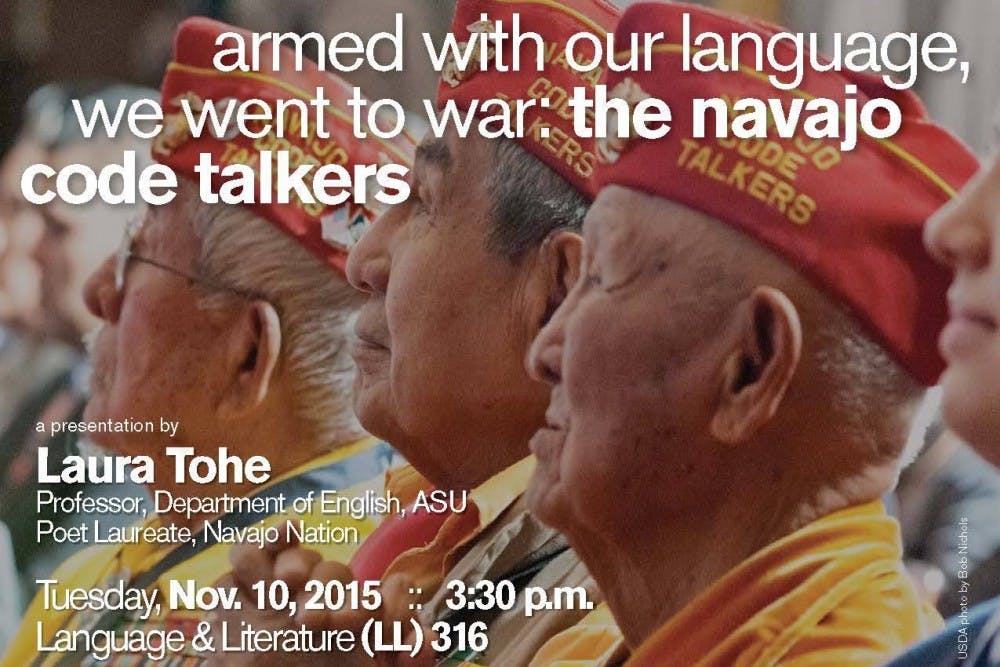Every year during Homecoming week, the ASU Department of English holds a contest that touts a big reward — for college students, at least.
The ASU Homecoming Writing Contest honors three students who excel at one of the three categories of writing: poetry, short story/creative nonfiction or scholarly essay.
The award for the contest not only includes recognition from the school for excellence in one of the categories, it also includes a juicy $500 prize. Needless to say, among starving artists like writers, this award money is highly sought after and the contest is fiercely competitive.
The event took place in a small room on the third floor of the Language and Literature building. I was warned to arrive early as seats would fill up quickly. There was a class assigned to attend the reception for a grade so the warning held true.
The winners of the contest were Elliot Winter for poetry, Sarah Brady for scholarly essay and Zach Webb for short story/creative nonfiction.
ASU Homecoming Writing contest fiction winner - Zach Webb
For @statepress pic.twitter.com/4zPZBnLYs9
— Logan Saether (@looooogaaan) November 11, 2015
Webb said he was surprised to hear he had won the award.
"I thought it was a joke at first, and I had to read the email three times — then I had no idea who it was from. And once I processed it, I was like 'Oh right, yes that's possible!'"
Elliot Winter, winner of the poetry prize had a similar feeling of surprise.
"I was in a pretty profound state of disbelief," Winter said. "I was having a rough day and I opened up the email and it just made my whole day better. It was the first recognition I really got for my writing."
ASU Homecoming Writing contest poetry winner - Elliot Winter
For @statepress pic.twitter.com/0fIFeaGIPM
— Logan Saether (@looooogaaan) November 11, 2015
Before any awards were handed out, Professor Laura Tohe, Poet Laureate of the Navajo Nation, gave a preliminary presentation on the WWII Navajo Code Talkers.
A committee selected Tohe as the second ever Poet Laureate of the Navajo Nation. She holds the chair for two years from 2015 until 2017.
Some of her goals and responsibilities of her position include promoting the Navajo language and literature among the Navajo youth and to give at least two readings a year. She wants to make Navajo literature much more visible to the Navajo people and the rest of the world.
"I have some school visits that I'm going to be doing this year and part of next year where I'm going to a school and working with a another Navajo poet to conduct workshops," Tohe said. "I want to work to get Navajo writers part of the school curriculum on the reservation. It's probably going to be a daunting job but that's one thing I would like to work on."
Tohe said poetry is essential for society because of it's effect.
"There are lots of things that poetry does and one of them is that poetry enlightens us," she said. "It brings us closer to a knowing of the world. Some of it's mysterious, (but) poetry helps us to see things we don't normally see within our frame of reference."
Related Links:
ASU professor hosts STEAM camps on Navajo reservation
Reach the reporter at lsaether@asu.edu or follow @looooogaaan on Twitter.
Like The State Press on Facebook and follow @statepress on Twitter.




